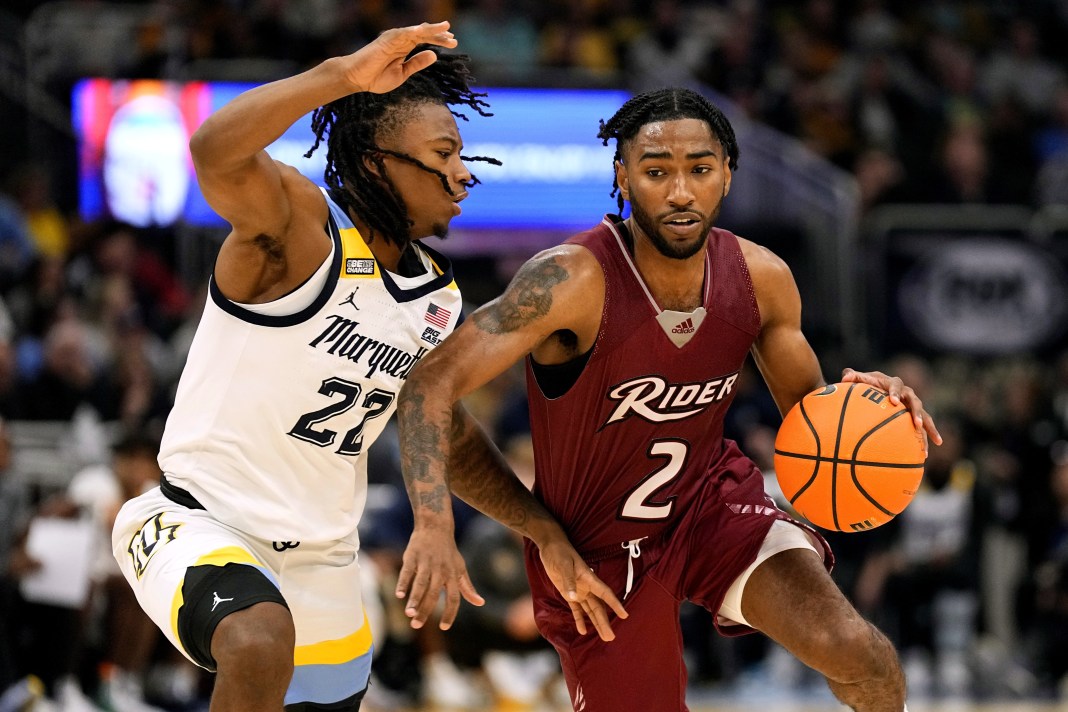Using a Team’s Schedule and Statistics to Handicap College Basketball
As the betting world turns, I always enjoy the month post-Super Bowl because of the college basketball slate. We are to the point in the hoops season that information on each of the teams is prevalent and all the matchups that we are handicapping are either re-matches or there is a plethora of common opponents. My favorite angle in college hoops has been the rebound/letdown game. Teams coming off a huge win or trying to bounce back from being upset are almost universally valued incorrectly. Ohio State was a great example of that last night, winning their Super Bowl on Sunday at home versus Purdue and then falling by double digits to Minnesota in the following game. It is just tough to get that high for back-to-back games, especially coming off a win in an otherwise lost season.
My second favorite angle is the rematch games. People often talk about revenge; I do not buy into that nearly as much. Motivation changes from game to game based on conference standing and when that last game was played. Sure, if they played back-to-back games, then let’s factor it in, but in cases like Minnesota and Ohio State, who played to open the Big 10 season, that is not a numerically definable edge.
The reason I enjoy betting on the rematch games is because you have a season’s worth of averages and box score that shows a singular result. In basketball, at any level, there are stats that are more likely and less likely to be repeated in a basketball game, assuming we are rolling out the same lineup as before. Things like shooting percentage, specifically 3-point percentage, generally have a high variance while rebounding is a low variance stat. Simply put, a team that shots 50% from 3 is unlikely to repeat that performance in game two, but a team who wins the rebounding battle by 10 is likely have win the rebounding battle again in the rematch.
When combing through those past box scores, I am looking for outlier numbers that created a larger or smaller difference in the final score and thus is not a final score that is indicative based off season long averages and home and road splits. Home-field advantages in major sports have dipped over the last 10 years. With ease of travel and larger, more expensive ticket prices, we have seen the NFL go from a 3-point edge down to a 1 to 1.5-point edge.
In college basketball, that has not been the case. Each gym is a different size with different sight lines. Shooting percentage home and road can be significant for these teams. Travel is not as streamlined and many of these players have yet to have routines built around travel. It is important to look at season long averages at home and on the road as separate stats.
One game that fit the bill for me today is Iona vs Rider (-1.5). In the first match, both teams shot well from 3, but that was in Iona. Iona shoots 37% at home and 33% away so I would expect some regression. Additionally, Rider dominated the boards winning the rebounding battle 47-28 with Tariq Ingraham specifically giving Iona headaches. Against the four guard Iona line up, he pulled down 18 rebounds alone. Iona also won the turnover battle in that game 14-3. Iona averages 10 per game while Rider averages 12 per game. It is unlikely we will see a -11 turnover differential for Rider again.
In this spot, we have one repeatable stat that is a positive to Rider and two higher variance stats that both went Iona’s way in the 94-93 win at home. That all leads me to lay the -1.5 with Rider at home today.
Digging through these box scores takes work, but this late season college basketball can be very profitable if you are willing to put the time in!






